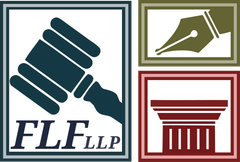Feriante Law Firm LLP
California Attorneys
Our Work in Brief
Feriante Law Firm LLP is focused on helping individuals and families create legally binding documents that outline how their assets should be managed and distributed both during their lifetime and after their death. Here's a breakdown of the work you can expect from our office:
Consultation: Firm lawyers meet with clients to discuss their financial situation, family dynamics, and personal goals. They ask questions to understand the client's wishes and concerns and provide guidance on the estate planning options available to them.
Document Preparation: Based on the client's preferences and objectives, our lawyers draft various legal documents, such as wills, trusts, powers of attorney, healthcare directives that include agent and beneficiary designations. These documents are tailored to the client's specific needs and designed to address their unique circumstances.
Reducing Taxes: Firm lawyers work with clients to minimize estate taxes, gift taxes, and other tax liabilities associated with the transfer of wealth. They may recommend strategies such as gifting, charitable giving, or establishing tax-efficient trusts to reduce the client's tax burden.
Overall, the work of our firm involves helping clients create comprehensive and personalized plans to protect their assets, provide for their loved ones, and achieve their long-term financial and personal goals. We serve as trusted advisors, providing expertise and guidance to navigate the complexities of estate planning to help ensure that clients' wishes are carried out effectively.
Probate Avoidance: One of the primary goals of our firm is to help clients avoid or minimize the need for probate, the court-supervised process of administering a deceased person's estate. Our attorneys employ various techniques, such as establishing trusts, naming beneficiaries on accounts, and structuring asset ownership to bypass probate and streamline the transfer of assets to heirs.
Family and Succession Planning: Our attorneys assist clients in developing succession plans for family businesses, passing down family heirlooms and assets, and addressing complex family dynamics. They help clients navigate issues related to blended families, second marriages, and providing for minor children or individuals with special needs.
Legal Updates and Maintenance: Estate planning is not a one-time event; to provide the most benefit, plans require periodic review and updates to ensure that the client's wishes are current and their estate plan remains effective. This can be very important when there are changes in the law or new regulations.
Executor and Trustee Guidance: Our firm provide guidance to executors, trustees and other fiduciaries responsible for administering trusts and estates. We explain their roles and responsibilities, assist them with the proper execution of their duties, and provide ongoing support and advice throughout the administration process.
Our Approach
Our attorneys help clients by employing a comprehensive and client centered approach that focuses on understanding the client's unique needs, goals, and concerns. Here are some key elements of this approach:
Personalized Consultation: Each client engagement for estate planning begins with a thorough consultation to discover and appreciate their financial situation, family dynamics, and personal objectives. By asking thoughtful questions and actively listening to the client's responses, we are able to gain valuable insight into client priorities and preferences.
Tailored Solutions: Based on the information gathered during the consultation, we begin to map out a personalized Plan Design proposal that addresses the client specific needs and goals. Developing this plan, helps our attorneys to later lay the foundation to construct the new estate plan upon. That “construction” will include the drafting of customized integrated legal documents, recommending tax-saving strategies, and providing guidance that can lead to protection from disclosure of your holdings and personal information through a probate proceeding, while addressing succession planning.
Education and Empowerment: Our attorneys lead discussions that educate clients about the various options available and empower clients to make informed decisions about their estate plan. These conversations include explaining various complex legal concepts in plain language, outlining the potential benefits and drawbacks of different strategies, and answering any questions or concerns the client may have.
Collaboration and Coordination: Estate planning often involves collaboration with other professionals, such as financial advisors, accountants, and insurance agents. We are happy to help clients connect with quality professionals that may play an important role in their estate plan.
Ongoing Communication: Effective communication is essential throughout the estate planning process. Our office keeps clients informed about the status of their estate plan and is responsive to any questions or concerns that arise along the way. The secure portal, that clients are given access to for the sharing of documents, is a handy way to recommend specific changes to specific documents or to ask questions. Gone are the days of scouring email threads in hopes of finding long lost notes or answers to questions.
Regular Review and Updates: Our attorneys are available for the plan reviews and updates that help to ensure that plans remain current and effective. Making the occasional updates is the way plans can be adapted to changing situations.
Compassionate Support: Finally, we approach our work with empathy, sensitivity, and compassion. We recognize that estate planning can be a sensitive and emotional process for clients and provide the support and guidance needed to navigate difficult decisions and complex family dynamics.
By adopting this client-centered approach, our firm is able to help clients achieve peace of mind knowing that they have a plan and that their assets and privacy will be protected from probate. It is a wonderful feeling to have confidence that loved ones are provided for now and going forward and that your wishes will be carried out, even in the case of incapacity or death.



Blog
HAVE QUESTIONS?
Frequently Asked Questions
-
I WAS NAMED TRUSTEE OF MY DECEASED FATHER'S TRUST. WHAT DO I DO NOW?
Administration of a Trust is a foreign process to most people. As a result, it can be more frustrating, time consuming and expensive than it needs to be. Consulting with an attorney can help you more easily administer your father’s Trust.
-
IS A HAND WRITTEN WILL VALID IN CA?
While hand writing one’s own Will seems like an easy enough task, meeting the requirements for a judge to find it to be valid is not as easy. There are times and circumstances in which executing a hand written (“holographic”) Will may be the only option, however, this is not always the best option. It is best to meet with an attorney to discuss your circumstances, your wishes and your options before drafting a holographic Will.
-
MY WILL IS FROM ANOTHER STATE. IS IT VALID IN CA?
It depends. The laws for establishing a valid Will vary by state. This can be a very complicated matter in California. An attorney can provide you with assistance in presenting the Will to the proper California court for review and determination of whether the Will meets the requirements to be valid under California law.
-
THE BANK WON'T LET ME ACCESS MY DECEASED BROTHER'S SAFE DEPOSIT BOX. I AM HIS TRUSTEE. WHAT GIVES?
The bank would have frozen his box upon learning of his passing. You will need to provide the bank with the proper Trust documents if your brother registered the box into his Trust. Otherwise, if he did not grant you or anyone else authority to access the contents of the box, the Court will need to grant authority through the probate process.
-
MY PARENTS ARE DOING THEIR ESTATE PLAN AND WANT ME TO SERVE AS SUCCESSOR TRUSTEE. I AM NOT ORGANIZED OR GOOD AT FOLLOWING DIRECTIONS. SHOULD I TURN DOWN THE POSITION?
Accepting the role of Trustee means that you accept the duties, responsibilities and liabilities of serving in that capacity. If you feel that taking on such a role is beyond your capabilities, you can decline to serve as Trustee. Your parents’ can explain or they can ask their attorney to explain the role to you so you can make an informed decision.
-
I HAVE NOTICED THAT MOM'S MEMORY IS STARTING TO SLIP. IS IT TOO LATE FOR HER TO EXECUTE A POWER OF ATTORNEY?
A person has to have the legal capacity to execute legal documents. Legal capacity and medical capacity are evaluated by different standards. California law provides an attorney with the parameters to establish whether or not your mother has the legal capacity to execute a Power of Attorney. Your mother should meet with an attorney sooner than later.
Contact Us
HOW CAN WE ASSIT YOU?
Contact Us
Thank you for contacting us.
We will get back to you as soon as possible.
Please try again later.
Address
39899 Balentine Drive, Suite 315
Newark, CA 94560

Quick Links
Practice
Contact
39899 Balentine Drive, Suite 315
Newark, CA 94560
Social
The use of this website does not create an attorney/client relationship. Information on this site does not constitute legal advice.

